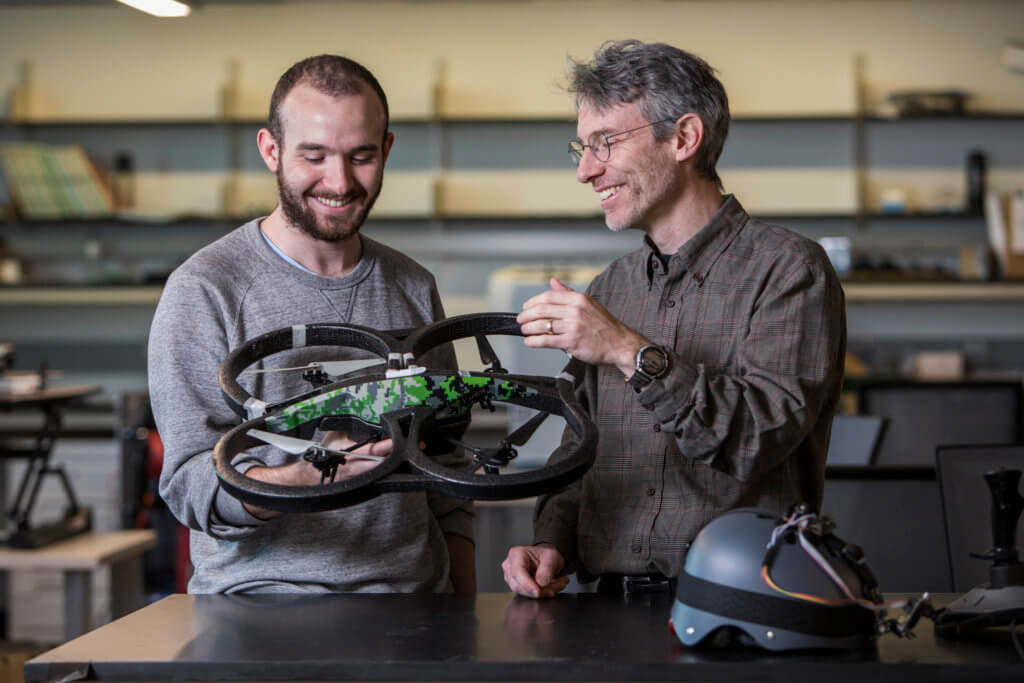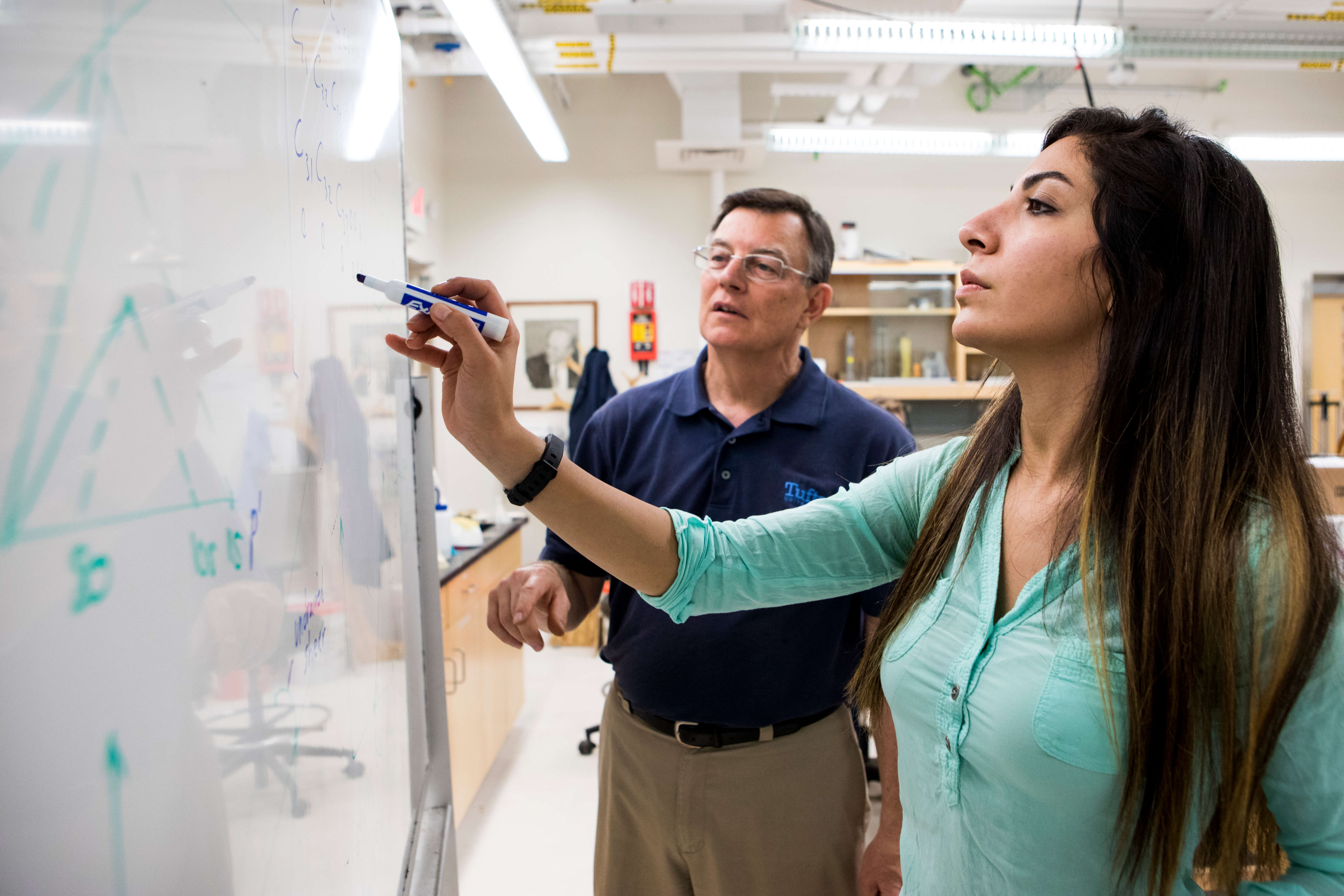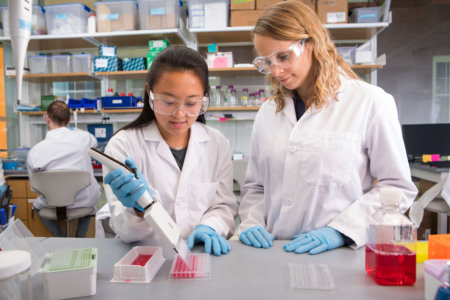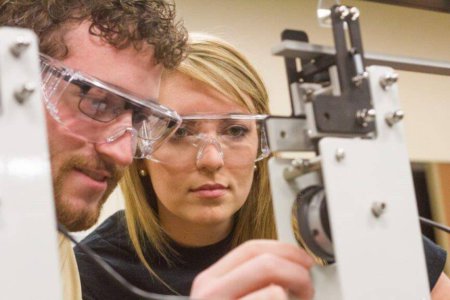We’re one step closer to treating metastasis, the leading cause of death in cancer patients, thanks to Priyanka Ram’s thesis project at the Tufts University School of Engineering. She tested out the effects of approved drugs on the bioelectric properties of tumour cells and evaluated their ability to treat metastasis as part of her MS in Biomedical Engineering.
“During her project, she was also able to bring a unique perspective to the business side of drug repurposing to the lab and shed light on the best strategies to get repurposed drugs to the clinic,” says Madeleine Oudin, PhD, Tiampo Family Assistant Professor of Biomedical Engineering. “Further, Priyanka applied her excellent communication skills and ability to pitch a complex concept and won the Tufts Three Minute Thesis (3MT) Competition.”
Ram was able to do these as she was part of the Tufts Gordon Institute and the School of Engineering’s Dual Degree programme. The MS in Innovation & Management and MS in Biomedical Engineering allowed her to bridge her interests and challenge the status quo.
“Biotechnology is becoming more integrated; there are no longer scientists and engineers on one side of product development with business leaders on the other,” she says. “The Dual Degree has emboldened me to find innovative solutions to serve patient and industry needs by communicating effectively with all stakeholders.”

Source: Tufts University School of Engineering
Tufts School of Engineering offers graduate degrees in more than 25 engineering disciplines and at various levels — certificate, postbaccalaureate certificate, MS, and PhD. They fuse top-notch classroom instruction with hands-on experience and interdisciplinary projects that draw from real-world scenarios.
The result? A track record of success in preparing students like Ram to achieve their professional goals, advance their careers in industry, or progress into further research and graduate study — 98% of graduates secure employment or receive a job offer by the time they graduate.
A personalised path of study at Tufts School of Engineering
A Tufts education offers flexibility and choice. In addition to the various disciplines, levels, and programmes, students can also opt for 100% online degrees in computer science, data science, and engineering management. These can be tailored to fit their needs, part-time or full-time.
More importantly, they allow students to pursue an education that speaks to their own academic and career interests.
MS in Cybersecurity and Public Policy student Mariam Amini describes her programme as “a true collaboration with faculty members, classmates and researchers from all academic disciplines.” Her programme is jointly administered by the Department of Computer Science and The Fletcher School of Law and Diplomacy.
“There is no MS degree like it! I love that I am taking classes with engineering students and Fletcher students,” she says. “This past semester in my Cyber in the Civil Sector course, my classmates included members of the US military, engineers, lawyers, entrepreneurs, and recent graduates who would log onto Zoom from across the US, India, France, Japan, and China. This diversity of thought fosters a deeper understanding of cybersecurity and public policy.”
Working with Dean of Graduate Education Karen Panetta, musician Tyler Morris combined his passion of audio engineering with signal processing and machine learning, a type of artificial intelligence, into his master’s research.
“I’m always striving to innovate as I write music and create pedals unlike any others on the market. I want to do things that haven’t been done,” the MS in Electrical Engineering graduate says.
Roan Gideon, an MS graduate in Offshore Wind Energy Engineering, was similarly drawn to the school’s interdisciplinary thinking and collaboration. He was among the inaugural class of students working at the intersection of research and development, energy independence, and sustainable development.
“There are opportunities to take really fascinating technical courses that discuss some of the offshore wind related projects the Tufts faculty has previously worked on in the US, as well as policy courses in The Fletcher School,” he says. “Our entire cohort for the offshore wind programme comes from very different engineering backgrounds and interests.”
Tufts School of Engineering also boasts the strengths of a top-ranked liberal arts college — without which Joshua Rapp would not have been able to harness his interests in music and electrical engineering into a career studying computational imaging.
“I loved that so many of my fellow Jumbos were not at all engineers,” the Electrical Engineering graduate says. “It was a fantastic way to keep my horizons broad, even while specialising in a technical field.”
From innovation and leadership, to management and technical skills, students here graduate ready to create engineering solutions that matter. If this is the future you seek, consider the following MS programmes by Tufts School of Engineering: Bioengineering, Biomedical Engineering, Chemical Engineering, Civil and Environmental Engineering, Computer Engineering, Computer Science, Cybersecurity and Public Policy, Data Science, Electrical Engineering, Human Factors Engineering, Human-Robot Interaction and Computer Science, Human-Robot Interaction and Electrical Engineering, Human-Robot Interaction and Mechanical Engineering, Innovation and Management, Materials Science and Engineering, Mechanical Engineering, Offshore Wind Energy Engineering, Software Systems Development.
Follow the Tufts University School of Engineering on Twitter, Instagram, LinkedIn and Facebook.












